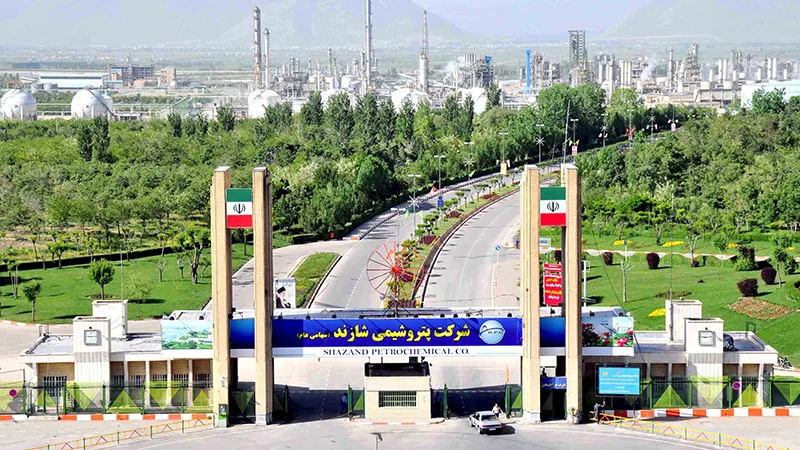With the Entry in Force of the Joint Comprehensive Programme of Action (JCPOA) on 16th January 2016, not only all the sanctions imposed on Iran by the UN, US and EU have been revoked but also the process of ‘mainstreaming of Iran’ has commenced. Of course Iran had been economically isolated and penalised by decades – long sanctions imposed by the US, but that did not bankrupt the country nor did it lead to a civil war to overthrow its leaders as fondly hoped by analysts in the US and in Iran’s neighbourhood. What has hurt Iran more than the sanctions is the falling price of crude oil that has now hit $28 to a barrel, its 40 year low.
It must be noted here that President Obama’s determined resolve not to be bullied by the powerful AIPAC and the Republican lobbies within the US, as well as Netanyahu and the Saudi rulers from outside, finally helped achieve a breakthrough to the 36 year old stalemate between the US and Iran. The moderate leadership of President Rouhani who faced similar resistance from the fundamentalist clerics in the Majlis and the more difficult Supreme Leader Ayotallah Ali Khameini, deserves equal credit for the final outcome.
The most important and immediate outcomes of the ending of sanctions would be that, firstly Iran will gain access to the international banking system – its Central Bank will now get a SWIFT Code through which it can receive and send funds from and to banks all over the world. Secondly Iran’s funds, estimated to be in the region of over $100 billion held in several American, European and Asian banks will now be unfrozen. Thirdly, Iran can start selling its oil to the world and transport it in its own ships. The Lloyds of London can no longer refuse insurance of its oil tankers. Iran can also start trading in all commodities and services with the rest of the world in the currency of its choice, instead of receiving its funds in ‘under the radar’ banks in Dubai. It no longer has to smuggle in tons of gold from Turkey as payment for its oil from customers far and wide. China, Japan and India continued to import Iranian oil despite the severest sanctions, albeit on a much smaller scale and had to constantly devise creative modes of payment that included the Turkish route.
Iran will now receive foreign investment for its much needed infrastructure, particularly for its old and aging refineries. There are huge business opportunities, right from building airports, to ports, roads and railway network including track and coach building. One of the first things the Government of Iran has done is to place an order for 100 A-320s from the Airbus Industry. Telecom and Energy sectors will also attract a lot of interest and investment. Automobile industry will see a major boom. Audi is already in talks with the concerned ministry in Tehran to set-up its manufacturing unit.
Its economy and financial sectors need to be rebuilt, manufacturing and service industry have to catch up with the lost time and generate urgent employment as unemployment is at record high levels. German, British and French Foreign Ministers have already visited Tehran, well before the formal lifting of sanctions and have struck major investment and trade deals. For the recession hit Europe, the opening up of a new market as large as Iran with its 80 million population comes as a great boon. The only problem is that Iranian oil is now re- entering the world market when its price has hit an abysmally low mark, compared to the high it enjoyed at $110 per barrel prior to imposition of the harshest sanctions in December 2012. Yet the fact that Iran can now access a hundred billion dollars of its own funds (not loans and credits) makes it still a very solvent business partner. It is remarkable that despite the decades -long sanctions, Iran’s economic position is far better than those countries that the West had adopted to re-build and re-construct, such as Iraq and Afghanistan. And here is a country that the West was determined to destroy, economically and politically.
Now a re-emergent Iran poses a significant challenge to the geo-politics of the region. Iraq and Syria are in the throes of a civil war with significant portions of their territory occupied by a Proto-State calling itself the Islamic State. Syria no –longer exists as it did in 2012, thanks to the mercenaries fighting as proxies for Qatar, Saudi Arabia and Turkey. Saudi Arabia and a coalition of Gulf Kingdoms are waging a war in Yemen with active support of the US.
Iran is already involved in propping up the embattled and besieged regimes in Iraq and Syria. The recent Russian intervention in Syria on the same side has bolstered its efforts. Iranian para-military force the Al-Quds, led by General Suleiman Osmani has been openly fighting the enemies of the Syrian regime as well as the terrorists of the Islamic State. As of now, it is clear that Iran and the US are in opposing camps, definitely in the war on Yemen, although in the war against the Islamic State, Iran and the US may seem to be aligned on the same side. That, however is an optic illusion, because though the US announced air-strikes on the territory of Islamic State in August 2014, all its attacks had not blunted any of the ferocity of the Islamic State nor had managed to vacate any of its territory.
The recent exit of the ‘Islamic State’ from Ramadi was more due to the efforts of the Iraqi army and the Sunni volunteer force rather than the air-strikes of the US led coalition. And the US-led coalition was truly alarmed when Russia decided to wage its own war against the Islamic State. The Western media was all out questioning the credibility of the Russian campaign and portrayed it as a war in defence of Assad’s regime in Damascus. The fact is that the hapless Syrian and Iraqi people are victims of the atrocities of the proxy mercenaries and of the Islamic State and that only Iran and Russia are doing their utmost to fight them and keep the territorial integrity of the two states seems to be lost on the high-minded Western-led Coalition.
As long as the US continues be a steadfast supporter of Saudi Arabia and other Gulf Kingdoms, its relations with Iran are likely to be strained, though President Obama has clearly set the US government on a path to reconsider its proximity to the Gulf Kingdoms who are increasingly becoming less relevant to the US stakes in the region.
This article originally appeared in The Economic Times.
The views expressed above belong to the author(s). ORF research and analyses now available on Telegram! Click here to access our curated content — blogs, longforms and interviews.




 PREV
PREV


